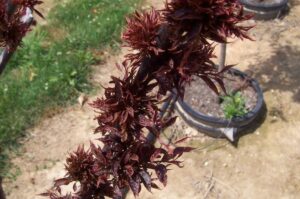
Dr. Carey Williams with her horse Mickie.
Each year, Rutgers hosts a Horse Management Seminar featuring invited speakers from New Jersey and across the U.S. on a wide range of topics in equine health, performance, and management. The seminar has traditionally been held on the second Sunday in February at the Rutgers Cook Campus. However, due to COVID-19 restrictions, the 2021 Horse Management Seminar was transitioned to a virtual format. [Read more…]
 Please join the Rutgers Hemp Team on Tuesday, February 23 at 9:00 AM
Please join the Rutgers Hemp Team on Tuesday, February 23 at 9:00 AM

